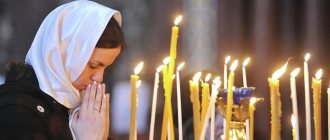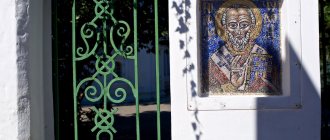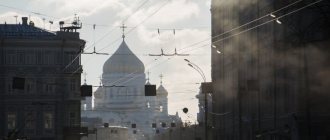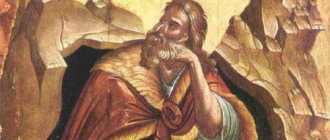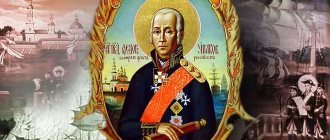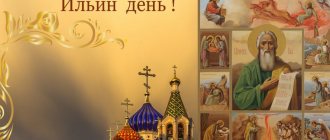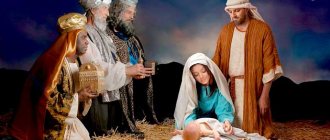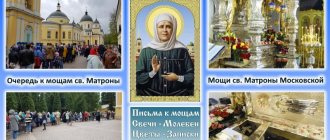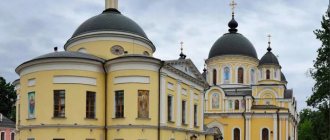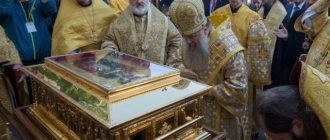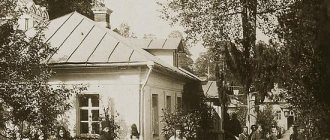In 1988, a report on the work of the interdepartmental commission of the Ministry of Health of the Ukrainian SSR appeared in the media. We were talking about one examination of the remains that rested in the Kiev Pechersk Lavra.
These were the remains of a man over forty years old, tall for his time - 177 cm, with a spinal defect, which indicated that in his youth this man was seriously ill and, obviously, could not walk. Experts dated the remains to the 12th century.
Who was it? A monk who died in a monastery? Or the legendary Ilya Muromets, the eldest of the three heroes, whose names are known even to children?
How a hero was x-rayed
Discussions about whether Elijah really existed could have continued for a very long time if not for scientific research conducted in 1989–1992 at the Kiev Pechersk Lavra. The fact is that in the Near Caves of the Lavra, among more than hundreds of relics of ancient saints, the remains of a certain “Ilya from the city of Murom” rest. It was these remains, along with dozens of others, that were examined by a group of scientists.
“The research was carried out for three years, and it was comprehensive. Scientists from various specialties took part in them. There were employees of the Kyiv Medical Institute from the departments of forensic medicine, anatomy, radiology, biochemistry, and hygiene. Of course, employees of the Institute of Geology of the Academy of Sciences also participated, and it was in this institute that the research on dating the remains was carried out,” says Professor Boris Mikhailichenko, an active participant in the scientific study of the relics of the Lavra saints, now the head of the Department of Forensic Medicine of the National Medical University named after A. A. Bogomolets . One of the main scientific sensations was the results of the study of the remains of Ilya Muromets.
Let’s give the floor to Boris Valentinovich: “Let’s remember the epics. There he is described as a man of heroic physique. Let's check. Body length, that is, height, is 177 cm. For that period of time, he was a tall man, because the bulk of the population was shorter. For example, the height of other saints from the Lavra is 160–165 cm. Further, the so-called tuberosities on the bones of the mummy are very well developed. And we know that the better a person’s muscles are developed during life, the more these tubercles he will have. That is, he had a well-developed muscular system. In addition, an X-ray examination of the skull revealed changes in the part of the brain called the “sella turcica.” These changes are characteristic of acromegaly, acromegaloid accent. People with acromegaly have disproportionately large body parts. At all times there are people with such symptoms, they say about them - “oblique fathoms in the shoulders”, in Ukrainian they are called “kremezni”. They have large limbs, a large head, that is, a heroic appearance. Does the appearance match the description from the epics? Certainly!
Still from the film “Ilya Muromets” (dir. Alexander Ptushko, 1956)
Let's look further. According to the epics, he lay on the stove for 33 years, then some Kaliki passers-by came, healed him, and he went to defend the Russian land. According to X-ray studies, he had a specific disease - spondyloarthrosis. The radiologists’ description states: “the flattening of the body of the fifth lumbar vertebra, the presence of osteophytes on the thoracic and lumbar vertebrae, as well as the arcuate joints of the processes of the fifth and fourth lumbar vertebrae suggest that during life this person suffered from spondyloarthrosis.” The symptoms of this disease are similar to sciatica, and in this condition people have limited mobility. For some period of time the person does not move or partially does not move. The 33 years spoken of in epics is most likely hyperbole. But the fact that he did not move for some time is certain. And then these old men came, apparently chiropractors. And then he stood up. Nowadays, such diseases are treated with massages and relaxing procedures, but a good chiropractor can straighten the vertebrae and even cure a person.
And another argument is the age of the burial, dating back to the 11th or 12th century. Taking into account all these parameters, we can well assume that these relics really belong to Ilya Muromets.”
Professor Mikhailichenko recalls that the research process itself made an indelible impression on him at the time: “It was unique scientific material; no one had to work with anything like it. In addition, it was always believed that these relics were falsifications, but it turned out that the epics were based on real events.” He calls the coordinated work of the team of scientists another important feature of the research: “We came to the Lavra twice a week. It was very easy to work with and with enthusiasm, one might even say with pleasure,” he recalls.
“I think that the Lavra monks would say that the Pechersk saints are helping you in this research with their prayers,” I remark to Boris Mikhailovich.
“Maybe,” he answers.
Canons and Akathists
Kontakion 1
To the commander of the forces of the Russian land, the warrior of the King Christ and the intercessor of Holy Rus', glorious in battle and invincible in battle, to the wondrous hero Elijah of Murom, let us sing a song of praise, may he now intercede for us who call: Rejoice, reverend Father Elijah, glorious intercessor of the Russian land.
Ikos 1
The Creator of Angels, when He descended to the earth in the form of a slave, did not reveal Himself to the world until the age of thirty, so you too, Saint Elijah, were granted until that age to be unknown to anyone and bodily immovable, and after that serve the Lord and His people with all zeal and zeal. , which we praise: Rejoice, thou wisely preserved for thirty years by the providence of God; Rejoice, chosen from birth, may the works of the Lord appear on you. Rejoice, having escaped many temptations of youth through your illness; Rejoice, you who kept your soul pure through suffering. Rejoice, you who have prepared these for the reception of grace; Rejoice, sickness, as a gift of God, endured with humility, Rejoice, reverend Father Elijah, glorious intercessor of the Russian land.
Kontakion 2
Saint Elijah suddenly saw three wandering men appear to him, asking him to drink water, answering them: I would have given you something to drink, but not the imam of my nagama, and fed you also, but my hands are not the imam of the possession, and the same elders commanded him to wear three on his nose and serve them, then Elijah jumped on his nose and cried out to God: Alleluia.
Ikos 2
Having understood that Elijah had suddenly been healed of his illness, first put the cross on himself as written, then gave the strangers something to drink, they also gave him a cup of honey to drink, asking him to drink it to the bottom, I obeyed the same, do this, we, sinners, we call in wonder: Rejoice, for in the form of three strangers the Lord has come to visit you; Rejoice, for the Holy Trinity has appeared to you. Rejoice, you who were healed by the word of the Lord; Rejoice, raised up from your bed by the will of God. Rejoice, having drunk the cup from the hand of the Savior; Rejoice, filled with the grace of Christ. Rejoice, Reverend Father Elijah, glorious intercessor of the Russian land.
Kontakion 3
Sensing the great power within himself, Elijah, having drunk the miraculous cup, as if he had removed the relics of the mountains and plucked up oak trees from the ground, spoke about this to a stranger asking about the manifestation of your power, and in joy he sang to the Savior: Alleluia.
Ikos 3
If you now have a heroic strength, then live. Elijah, may you be a warrior, and in battles your death will not be written down, - the pilgrim’s remark and, having blessed you, disappeared as if he had appeared, but we, having recognized the hand of the Lord on you, sing: Rejoice, you who have accepted the footsteps of walking, may you go to right paths; Rejoice, you who have received the possession of your hand, may you do works pleasing to God. Rejoice, you have received good health, may you labor for God by the sweat of your brow; Rejoice, you who have received healing, may you work for Him who healed you. Rejoice, you who have received the blessing, may you guard your soul in piety; Rejoice, you who have received great power, and glorify with it the name of the Almighty. Rejoice, Reverend Father Elijah, glorious intercessor of the Russian land.
Kontakion 4
Your parents were overcome with a storm of bewilderment and greatly amazed with great horror, seeing you come, and your feet and hands were healed, and cried out joyfully: Glory, glory to the Lord, praise to the Most High: Alleluia.
Ikos 4
Hearing the blessing of the Lord, you cannot stay at home any longer, since the time has come for your feat, ask your father - mother for permission to go to a distant land, the father says: I will give you a blessing for good deeds, but for bad deeds there are no blessings for you, you bow to the ground, having set out on the path that we sing: Rejoice, having fulfilled the words of Christ with your life; Rejoice, beloved of God and neighbors more than father and mother. Rejoice, you who preferred the love of God to the love of parenthood; Rejoice, you who left your father’s house and serve the entire Fatherland. Rejoice, hero of Holy Russia, restored by the spirit of Christ; Rejoice, you have been appointed guardian of the church and Rus' by Him. Rejoice, Reverend Father Elijah, glorious intercessor of the Russian land.
Kontakion 5
God-filled was your journey to the city of Kyiv. As if you first wanted to pray to the Lord in the churches of God and worship the Mother of God of the Pechers in the Lavra of Successes, thank you for the healing and sing his praise with the song: Alleluia.
Ikos 5
Seeing the great sorrow that befell the land of Kiev from the presence of the filthy, you laid the beginning with your feat, the city of Chernigov and the path to the city of Kiev, freeing and destroying the enemies of the Christian faith, so that the people, freed by you, cry out: Rejoice, shield of salvation, which is the word of God, having received; Rejoice, you who penetrated the copy of faith of the wicked. Rejoice, having overcome the infidels with the club of piety; Rejoice, having saved us from the arrows of the enemy with the cloak of chastity. Rejoice, having dressed yourself in the armor of virtues; Rejoice, thou who fought against the spiritual enemy fully armed. Rejoice, Reverend Father Elijah, glorious intercessor of the Russian land.
Kontakion 6
The preacher of the power of the Christian God appeared, Elijah, to the foreign armies with all the power to overcome because Jesus strengthened you, but Christians, who were freed by you, never cease to call: Alleluia.
Ikos 6
Then a shining star appeared in the city of Kiev - the bright brave hero Ilya of Muromets, to intimidate the wicked, the hard-hearted to trample, the Russian land given by God for glorification, where your relatives still call you: Rejoice, Russian army leader; Rejoice, guardian of orphans and widows. Rejoice, faithful help to the capital prince; Rejoice, hail and weight of the reliable mediastinum. Rejoice, grace-filled victory over the forces of the enemy: Rejoice, exaltation of the Orthodox people. Rejoice, Reverend Father Elijah, glorious intercessor of the Russian land.
Kontakion 7
Wanting with all your soul and heart to serve God and Holy Rus', you rejected the vainglorious thought, when you were trying to be appointed governor of the city of Chernigov, you humbly entered into the service of the prince of Kiev, and not just for one city, but to serve the whole people, as if it were not forbidden sing to God: Alleluia.
Ikos 7
Having appeared on earth as a new Sampson, having served the new Israel - the Russian Orthodox Fatherland with faith and righteousness, Elijah of ever-memorable comrade and now with your relatives, calling: Rejoice, as David fought in the name of the Lord of hosts; Rejoice, for as Galiath is the same, so you too have defeated the foreign giant. Rejoice, as Sampson, endowed with great strength from God; Rejoice, the namesake prophet Elijah through zeal for God. Rejoice, for Daniel blocked the gaping lions of unfaithful foreigners; Rejoice, Angel, former guardian of the borders of the Russian principality. Rejoice, Reverend Father Elijah, glorious intercessor of the Russian land.
Kontakion 8
Wandering along the side of Kiev and protecting it from dashing robbers, you did not seek wealth and honor for yourself, but I am going to serve for the Christian faith, and for the Russian land, and for the capital Kiev - the city, - you answered as a man, I do not seek glory from them , Singing glory to God: Alleluia.
Ikos 8
Trying to fulfill the entire law of the Gospel on yourself, laying down your soul every hour for your neighbor, thinking that the Lord is my helper and I will look at my enemies, you defended the borders of the Fatherland, but the Russian people do not stop calling you like this: Rejoice, call the Lord with all your heart hearing; Rejoice, you are not merciful for your neighbors. Rejoice, thou who conquered the infidels by right faith; Rejoice, you who drove out foreigners with the Russian spirit. Rejoice, you who called upon the Lord for help on the battlefield; Rejoice, having cut through the darkness of the enemy together with the Heavenly forces. Rejoice, Reverend Father Elijah, glorious intercessor of the Russian land.
Kontakion 9
Every nature of men and angels was greatly amazed, when you betrayed your only son, who betrayed the Russian Fatherland, without giving mercy, you slain with a spear, so that you do not harm the Orthodox people, but we, trembling with the strength of your faith and your trust in God, sing: Alleluia.
Ikos 9
Veti praised your exploits with many words, but whoever is able to express all the providence of God over you, for in your name all the power and strength of the spirit of the Russian hero has been embodied, you have crushed all the obstacles of the enemy, for which your descendants still magnify you: Rejoice, brave warrior of the militant Church; Rejoice, glorified victor in the triumphant Church. Rejoice, fearless and conqueror of all enemies, visible and invisible; Rejoice, beloved, beloved of the Lord and His people. Rejoice, righteous man, who did not hide the talent of his Master; Rejoice, reverend father, increasing the glory of our God. Rejoice, Reverend Father Elijah, glorious intercessor of the Russian land.
Kontakion 10
Although you saved your dear side not only from foreign enemies, but also from the unknown, you also saved your soul, the gold and silver given by princes, wasting it on the poor and using it to build churches, you retired to a monastic monastery, there from the depths of your heart singing to God: Alleluia ..
Ikos 10
The walls of the holy monastery sheltered you, Reverend Father Elijah, where in the cloister with unceasing tears and all-night prayers, for your sins and human blood, shed voluntarily and involuntarily, you propitiated God, who, seeing your humility and contrition, soon bestowed great grace upon you , as if all the brethren were amazed, calling: Rejoice, you have been transformed from a physical warrior into a spiritual warrior; Rejoice, having put aside the physical sword and spear and armed yourself with the spiritual sword. Rejoice, you who left behind perishable weapons and cut off the enemy with unceasing prayer; Rejoice, and in spiritual battle the winner has appeared. Rejoice, thou who was vouchsafed the gift of clairvoyance before the end; Rejoice, you who have also received the grace of miracles. Rejoice, Reverend Father Elijah, glorious intercessor of the Russian land.
Kontakion 11
Accept the singing of meager words and pray for your poor relatives, and be an intercessor for us with God, and a deliverer on earth, as before, and do not stop, we pray, to pray to God for Rus' with the Holy Song: Alleluia.
Ikos 11
Lamp lit by the oil of grace, Father Elijah, illuminate us now, who vegetate in darkness and gloom, and be the commander of the Russian army, liberating the Fatherland from the full of wickedness and strengthening the soldiers in the army, and ask them for reason and piety from God, and let us call to you: Rejoice , serenely resting with all the righteous from time immemorial; Rejoice, you who peacefully departed to the Lady of life and death. Rejoice, having taken much boldness from Him; Rejoice, you who continually intercede for your fellow tribesmen. Rejoice, thou who has hitherto guarded the Russian land from the presence of the fierce ones; Rejoice, Reverend Father Elijah, glorious intercessor of the Russian land.
Kontakion 12
By grace, growing the Russian state, the Lord, at the beginning of this messenger of you, Elijah, his warrior, the new people - God's acquisition - the Russian people are invincible from the slander of Satan, as the Orthodox are accustomed to, trusting in God, to sing: Alleluia.
Ikos 12
Singing the deeds of your life, we give praise to the Almighty God, the Wise One who organizes the world, for He Himself is Triune, so also Rus' was made Triune, and the Orthodox people, with this in mind, chose three heroes as their guardians, as they represent the Trinity of God, and their commander, With glorifying faith they cry out to Elijah of Murom: Rejoice, thou who appeared to the servant of the Trinity in life and after thy repose; Rejoice, for the three fingers of your hand, formed for the sign of the cross, remain so to this day. Rejoice, for through this unprecedented miracle, many who doubted have found the right faith; Rejoice, and do not cease to perform miracles according to your imagination. Rejoice, even after your death, in your death body, glorifying the Lord; Rejoice, you who have hitherto rested in the incorruption of your relics. Rejoice, Reverend Father Elijah, glorious intercessor of the Russian land.
Kontakion 13
O holy Father Elijah, warrior and monk, spiritual and physical hero, warrior against enemies visible and invisible, now defend our Fatherland - Holy Rus', which is the footstool of the Throne of the Lord, and protect the Russian Orthodox Church, may people sing to your memory, and to the Lord, to the one who has given Rus' a protector, they bring praise with the song: Alleluia, Alleluia, Alleluia.
(This kontakion is read three times, then ikos 1 and kontakion 1)
What's true and what's false?
But even if it is scientifically proven that these remains from the monastery belong to an ancient Russian warrior, how do we know that this is the epic Ilya Muromets? And even if it was him, then perhaps the Church simply used the popularity of this folk hero to increase its own authority?
From the point of view of science, the main argument is, first of all, historical references to the fact that the relics of Ilya Muromets are kept in the Pechersky Monastery. The first such evidence dates back to the turn of the 16th–17th centuries. Thus, in the book “Teraturgima” by the monk Athanasius of Kalnofoy, published in 1638, among the saints of the Pechersk monastery, “the holy monk Ilya, whom ordinary people in vain call Chobotkom,” is mentioned. And in the travel diary of the German diplomat Erich Lasota, who visited Kyiv in 1594, we encounter two other interesting remarks. One is about the St. Sophia Cathedral: “On the outside of the church there was the tomb of Ilya Morovlin. He was a noble hero, or, as they say, a hero. Many fables are told about him. This tomb is now destroyed." Another is about the relics in the dungeons of the Pechersk Monastery: “There is also one giant or hero, called Chobotka. They say that he was once attacked by many enemies while he was putting on his boot. And since in his haste he could not grab any other weapon, he began to defend himself with another boot, which he had not yet put on, and with it he defeated everyone, from which he received such a nickname.” It is interesting that the “real giant” was seen in the same cave ten years earlier by Lyasota by the merchant Martin Groeneweg... The reason why, unlike Lyasota, the monk Afanasy denies the identity of Ilya and Chobotok, historians see either in the confusion of Lyasota himself, or in the possible transferring the relics of the hero from the St. Sophia Cathedral to the Pechersky Monastery.
The relics of Saint Elijah of Murom, kept in the Near Caves of the Kiev Pechersk Lavra.
Photo by Hierodeacon Vasily (Novikov) “A large number of ancient manuscripts have been lost, and the 17th century, when printing began to rapidly develop in Ukraine, is a kind of milestone. Some historical episodes that have not reached us in manuscripts are considered reliable, although they are known from printed books of the 17th century,” says historian Vladislav Dyatlov, author of several books about Orthodox shrines of Ukraine, head of the “Underground Kiev” department of the Museum of the History of Kyiv. In his opinion, books from this period are especially valuable for studying the history of the Pechersky Monastery, where a huge library was lost in a fire in 1718.
In later times, mentions of the relics of the hero Ilya in Kyiv caves are found more and more often. And one of them is the widely known and often quoted in church historical literature testimony of the Moscow Old Believer priest Ioann Lukyanov, left in 1701: “I immediately saw the brave warrior Ilya of Murom in incorruption under the cover of gold, as tall as today’s large people. His left hand is pierced by a spear, the whole ulcer is on his hand.”
However, if you try to create a complete picture of the hero’s life based on epics, it is sometimes difficult to distinguish truth from fiction.
“In the epics about Ilya,” notes Dyatlov, “two historical figures merged into one - this is the Kiev prince Vladimir the Red Sun and Prince Vladimir Monomakh, who lived a century after him. After all, epics are a folk epic, where real episodes become overgrown with fiction over time.” Archimandrite Nestor (Somenok), professor at the Kyiv Theological Academy and Seminary, chairman of the Church Historical Society named after St. Nestor the Chronicler, says the same thing: “First there was a tradition of veneration, then folk epics and literary fiction. People always want heroes."
The 19th century historian V.F. Miller, for example, assumed that Nightingale the Robber was an ordinary bandit who received his nickname for his ability to whistle well, and only folk epic assigns his whistle the power of a hurricane. The same historian provides an explanation for a strange episode in some epics about the hero: when Ilya, angry with the prince, allegedly shoots at the church domes. Miller draws attention to the fact that during the siege of Novgorod in the 12th century, one of the princes, shooting at the besieged city, hit an icon. The shooter is named in the chronicle as a “Muromets”, that is, from the city of Murom. From this, the scientist assumes that the same nickname passed from the chronicles into folk tales about the ancient hero. Modern historians believe that it was this episode, like many other fictions, that served as a significant obstacle to the compilation of the canonical life of Elijah.
“Judging by the fact that until the 19th century a wooden board was preserved for the inclusion of an engraved image of St. Elijah in the printed “Kievo-Pechersk Patericon,” the Lavra monks, back in the 17th century, intended to compile the life of the ascetic. But the engraving was never included in the book: probably, faced with the scarcity of reliable news, the monks postponed compiling the life until future times,” says Vladislav Dyatlov.
In other words, the veneration of Elijah as a saint began in the late Middle Ages, when the Church had enormous influence on the population and did not need folk heroes among its saints. Therefore, there was no need to increase your influence if it was already so great.
Where are the relics located?
In the Kiev Pechersk Lavra
The relics of Elijah of Pechersk rest in the Near Caves of the Kiev Pechersk Lavra. The saint's body lies in a position of prayer, with his right hand in the slit of the veil. The hand is folded into two fingers.
in Murom
In the city of Murom, in the homeland of Elijah, part of the saint’s left hand is kept. In the Spaso-Preobrazhensky Monastery at the address: st. Lakina, 1. There, in separate chambers with low arches, there is a tomb, in it is a sculptural image of a saint (a carved figure made of wood), the left hand lies on top of the chest.
There are particles of relics in the silver ark. Elijah's face is calm, he is in full monastic vestments, with a golden halo around his head.
Where is Muromets from?
In ancient books, Ilya is called differently: either Muromets, Muravlenin, or Murovlin. Candidate of Geographical Sciences Sergei Khvedchenya, who wrote a book about Ilya Muromets, explains the difference in the nicknames of the holy hero by the fact that Ilya actually comes not from Murom, but from the Chernigov principality - from the city of Moroviysk (which was first mentioned in chronicles in 1139). By the way, in the Kozeletsky district of the current Chernigov region, the village of Morovsk still exists today. Sergei Khvedchenya recalls that in some epics Ilya listens to matins in the church of his native city, and to vespers in the capital city of Kyiv. The distance from present-day Morovsk to Kyiv is approximately 90 kilometers, while from Murom it is about 1,500 kilometers. According to this logic, Ilya was most likely born on the territory of the modern Chernigov region.
However, this hypothesis about Ilya’s homeland is not shared by all historians. Khvedchenya notes in this regard: the honor of being the birthplace of our Hercules is disputed by different cities, as is the case with the Greek hero himself.
Scientific dating of the age of Ilya Muromets
According to Professor Mikhailichenko, the dating of the remains was carried out using amino acid analysis: “In living people, amino acids are in the L-form, and as soon as death occurs, the L-form turns into the D-form - this phenomenon is called amino acid racimization. The more time has passed since death, the more D-forms and fewer L-forms will be in the object. The specified forms of amino acids are compared using the ratio coefficient and the age of the object is determined using a special table. This generally accepted method is widely used throughout the world.
The radiocarbon method is not suitable in this situation. It requires several hundred grams of bones, which need to be ashed and then burned first. And then radioactive carbon is isolated from the ash, its quantity and the age of the object are determined. In our situation, we could not ashes the objects, because they needed to be preserved and not burned. And for the amino acid method you need 50 milligrams of matter. Dating the relics of Ilya Muromets showed that this man lived in the 11th or 12th century.”
